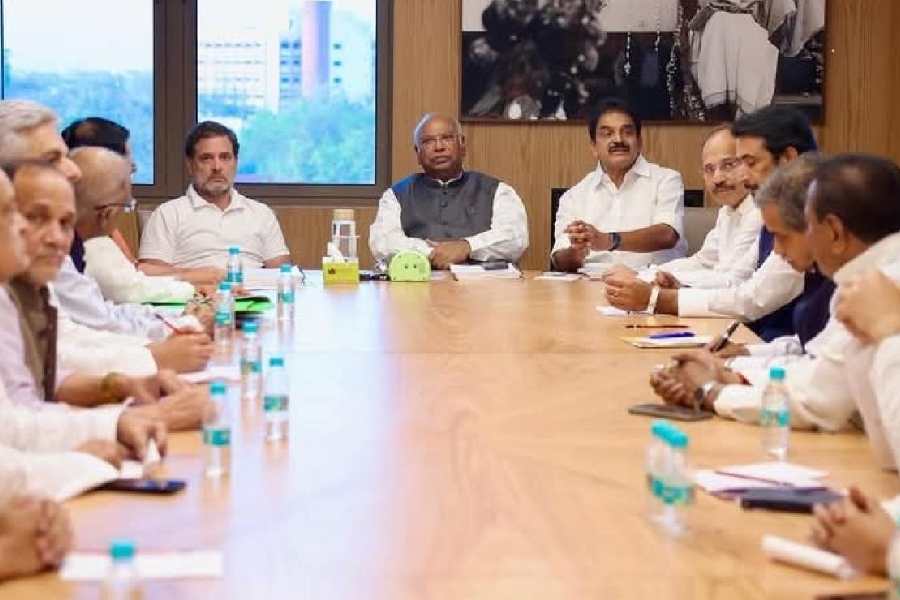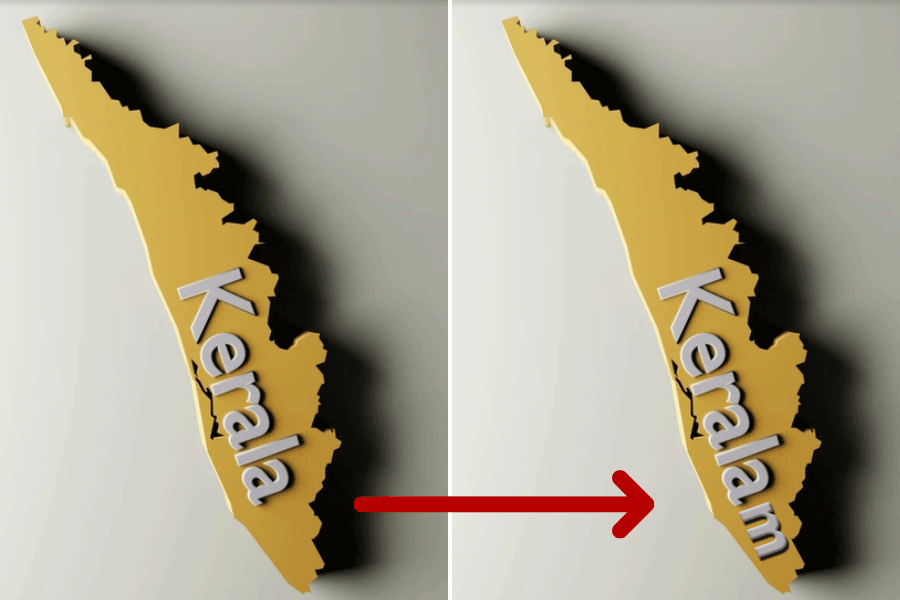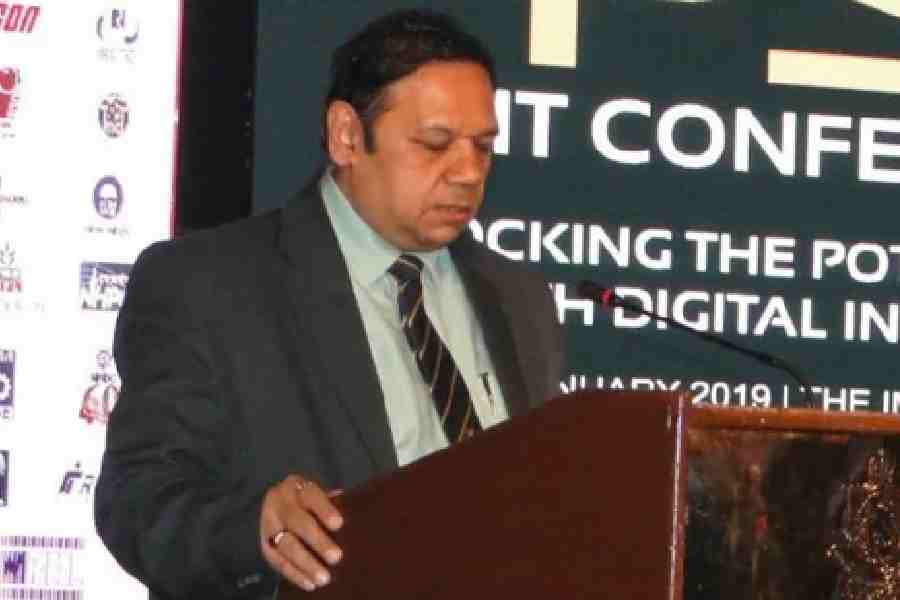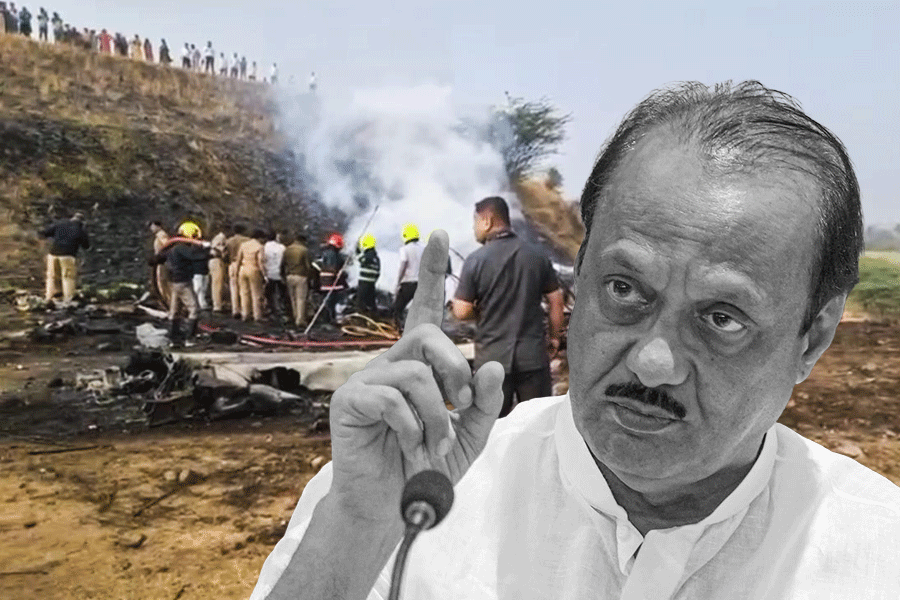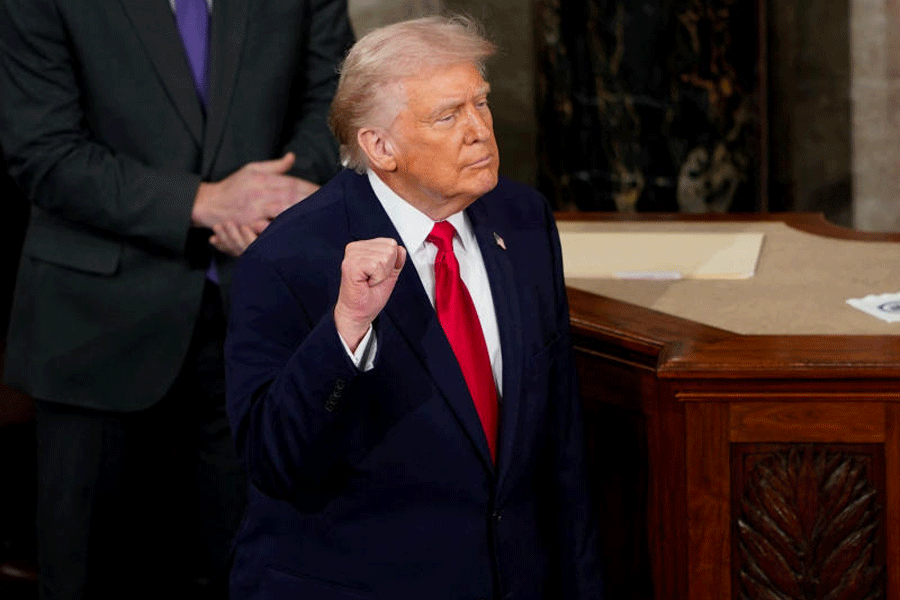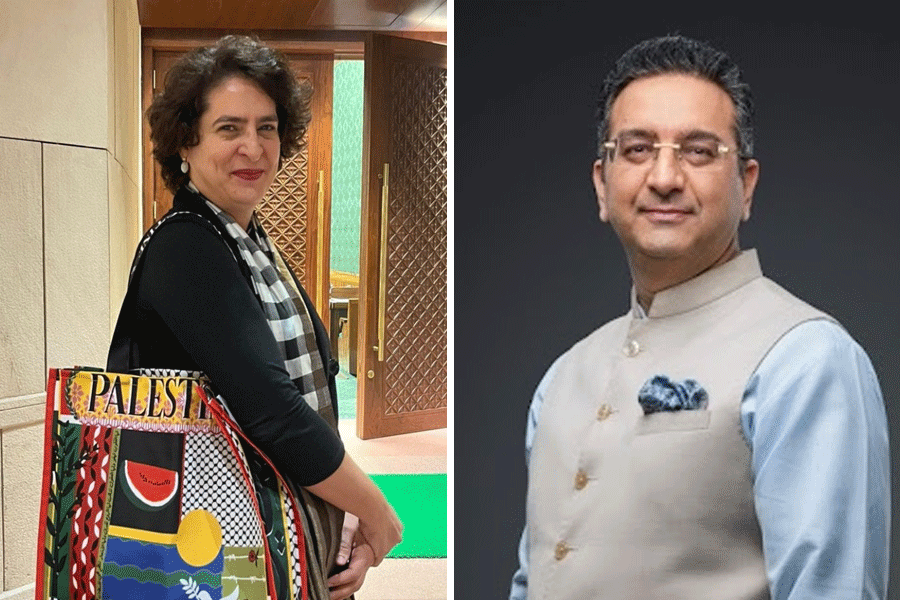Rahul Gandhi has been purportedly displeased to have witnessed firsthand an outpouring of internal differences in the Bengal unit of the Congress at a meeting in Indira Bhavan, New Delhi.
A key strategy meeting for the state Congress, which started in the afternoon and ended at night on Wednesday at the party’s new national headquarters, was partially marred by an “assertive, animated expression” of differences of opinion between Adhir Ranjan Chowdhury and Subhankar Sarkar, said sources.
Sarkar is the president of the West Bengal Pradesh Congress Committee and Chowdhury is his predecessor and a CWC member.
“It was going rather well, till it wasn’t…. The two had a squabble over who was called, and how, to attend the meeting, and over whether the state leadership was adequately represented. He (Rahul) was certainly not amused,” said a source.
“That Bidhan Bhavan (Bengal Congress headquarters) is a rather bitterly divided house is probably the party’s worst-kept secret. Besides, the whole party in Bengal — right up to the very top — faces similar problems. But for him (Rahul) to have to sit and watch… he wasn’t exactly thrilled to bits,” he added.
Gandhi, Congress president Mallikarjun Kharge, AICC general secretary (organisation) K.C. Venugopal, Bengal minder Ghulam Ahmad Mir and 31 state leaders, including Chowdhury, Sarkar, former Bengal unit chief Pradip Bhattacharya and CWC member Deepa Dasmunsi, attended the meeting.
When Chowdhury was asked to speak, he said he had doubts whether the genuine state leadership’s views were being presented in the meeting.
“When asked to clarify, he (Chowdhury) wondered why the likes of Murshidabad’s Manoj Chakraborty, Purulia’s Nepal Mahata, North Dinajpur’s Victor (Ali Imran Ramz) and the party’s youth wing chief in the state Azhar Mallick were missing…. The tone was rather accusatory,” said a leader privy to the developments, underscoring that all the names were of the party’s notable leaders from Bengal, but all of them were very much a part of the Chowdhury faction.
Nudged by Rahul, Venugopal asked Sarkar what it was about.
“Then he (Sarkar) went on a rather convoluted, emotional philippic on how these leaders usually don’t show up for state unit meetings when asked to attend… and although some were invited to Indira Bhavan, they made excuses,” the leader said, underscoring that Rahul was visibly nettled by this point, prompting Venugopal to intervene.
“Venugopal then said we cannot claim to be the nation’s flag-bearers of inclusive politics while being exclusionary in practice within the party. He said those minor differences ought to have been worked out in Calcutta,” added the source. “The state leadership was also advised against making this episode public.”
A senior district leader from south Bengal said some of the leaders whose names had been mentioned by Chowdhury had indeed been called by Sarkar, but he did so the night before and in a “wishy-washy” way.
“One of them was told by Sarkar that he wasn’t originally invited, but his name was somehow included after considerable trouble, so if he wants to join the meeting, he could. This was the night before. The gentleman thanked Sarkar for the trouble he took and said he wouldn’t be able to manage a Delhi trip on such short notice. Only because he was, quite obviously, rather insulted,” he said.
Sarkar is widely recognised as a moderate-to-soft-liner, who was deployed to succeed the militant Chowdhury, chief minister Mamata Banerjee’s bete noire.
The high command’s decision to replace Chowdhury with Sarkar indicated a majority view in the AICC — which Chowdhury remains part of — that the former Baharampur MP’s unflinching anti-Mamata stance and his proximity with the CPM did not help the Congress in the
general election.
Before the tiff, Rahul gave the state leadership some “much-needed” clarity on the stand on Trinamool in Bengal. Sources said the leader of the Opposition told the state unit that there might be national politics-related compulsions in Parliament to sometimes engage with Mamata’s party by way of floor coordination and other exercises in Delhi, but that has no bearing whatsoever on the Congress’s fight with her in Bengal.
“This was basically a go-ahead from the very top to keep playing the role of meaningful Opposition in Bengal, to keep resisting the very many wrongs of the Mamata-led state government here,” said a source.

